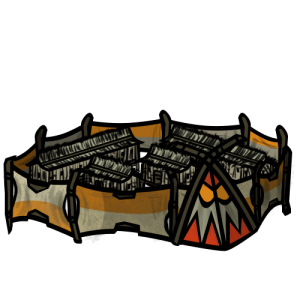 From the History of Loss and Hope, by Llanawi Puresoul of the Halls of Care, Chief Physician of the Office For Cleansing.
From the History of Loss and Hope, by Llanawi Puresoul of the Halls of Care, Chief Physician of the Office For Cleansing.
In the days before the Sundering, human villages dotted the many islands of the eastern seas. Fishermen and skilled navigators, these Kapikami were amongst the most loyal subjects of the Order of Silver Light.
Far from the mages’ great towers, local chiefs were left largely alone, to rule their islands, worship their sea gods, and follow their own laws and customs. All that was required was that they supply navigators, sailors and boat-builders to serve the mages. For their services they were well rewarded, and their people, in these long centuries of peace, were not put in any great peril by their service. And so as servants to the mages, they knew peace, purpose and prosperity.
But when the uprisings against the the Order of Silver Light began, the Kapikami came to be seen as collaborators. Their craftsmen and sailors in distant lands were victims of attacks by the mobs, and their chiefs were insulted by the rebel leaders. The mages were compelled by circumstance to make ever increasing demands upon them, pressing into service many unwilling young men to be sailors, to die in the wars. Chiefs who objected had to be removed, of course.
So, the treachery of the rebels forced the mages of the Order to act more firmly with their servants, and here we see how rebellion and chaos causes misery to even the loyal. Yet the great tragedy of the Kapikami was yet to come.
At length the Order of Silver Light realised that they could not control the chaos of the rebellions, and were obliged, in order to cleanse the land, to unleash the Sundering. All know the legends. The hills rolled, mountains fell, stone turned to liquid fire, flaming bolts fell from skies. This is how we remember those days. It is not how they remember them.
When the land churned and rolled, the seabed, too, did the same. Huge storms destroyed their fleets, drowning all who were at sea. Many of their islands were swallowed by the sea floor, plunging under the waves, drowning whole populations. And the upheavals on the coast unleashed towering waves, high walls of water, which swept towards the islands and crashed over their western coasts.
The geography of the seas was changed, with the small islands vanishing in a single day. But the way these people think, too, was changed.
They had worshipped the sea, loved and adored her, honouring the gods of the waters. And they had submitted to the authority of the Order. Now, they say The Wizards Turned The Gods. By this they mean that the mages turned the gods against them. This was not, for them, a mere cataclysm. It was also the most profound double betrayal. They think that their temporal overlords forced their watery gods to destroy them, unjustly.
The wise may question the logic of their view. Those of us who are astute and educated realise that the Order acted only in response to the reckless, ignorant violence of the rebels. And we understand that the Sundering was a perfectly natural magical event, if of unprecedented scale and ferocity. But for these people, they were betrayed by their lords and their gods.
Of this, there are three consequences.
First, as our leaders have lamented, these people, natural servants to their betters, with centuries of loyal service through the Second Age, are now most stiff-necked and obstinate, insistent upon their petty privileges, and jealously guarding their independence.
Second, as is well know, they have a fear and hatred of magic. I have never heard of another people who consider the study of magic a criminal act and forbid their people from its practice. As they believe that The Wizards Turned The Gods against them, they hate magicians, understandably.
What is less obvious is that they also, I believe, hate their gods. They still worship the deities of the sea, and they still ply the waves with great skill, though no longer from an island archipelago. But their reverence is tainted by bitterness, and their worship no longer a source of happiness.
